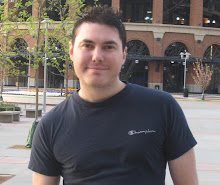It is difficult to comment on the events of the past couple of weeks in China's Wild West. They resemble in some ways the Wild Western frontier of the United States 100 to 150 years ago, where vigilante justice prevailed, and where revenge was revered. Any yet, there is so much that we don't know, and may never understand. What prompted a vigilante mob of Uyghur’s to set upon their Han Chinese counterparts with unimaginably horrific acts, murdering innocent bystanders and common laborers in cold blood, with sticks and other crude weapons. But the murder of 150 Han Chinese did not go unnoticed by their brethren.
They gathered, the children of Han, in the streets by the thousands, despite being in a tightly controlled place, armed with all kinds of make shift weapons, from cleavers to metal rods and even billiard ques. Mostly men, but also women and boys, driven to extreme, prompted by fear and motivated by rage. Gone was the shock and disbelief of the unrestrained violence of neighbors, replaced by a bitterness and anger that threatened to turn Urumqi into the very essence of hell on earth, a new Rwanda, a new Srebrenica.
I remember a friend I used to have from Hainan, the beautiful island often described as China's premier tourist destination. She had rich parents, who had given birth to her even though they already had an older daughter, in disregard of China's one child policy. For her family, money and influence was no obstacle. I remember the night she told me about the pictures she was viewing online from Malaysia. She described and showed me photos of Han Chinese, butchered in unimaginable horror simply because they were Han Chinese, and different from their majority Muslim Malaysian neighbors. Despite her status, and her understandable propensity towards indifference due to her living in a Western land with no constraints to her personal freedom, she displayed a moving passion. Behind the make up, the designer clothes, the loft and car bought instantly as a result of being a daughter of privilege, there was a palpable rage. She told me, earnestly, "I will never forget this." A daughter of Han, albeit a privileged one, stunningly aware of the vociferous violence directed at her own people thousands of miles away, vowing to never forget, and presumably, never forgive.
They are 92% of China's population, some 1,200,000,000 people. They represent 1 out of every 5 people on earth. They are people who, for the sake of full disclosure, I have known and loved more than people of my own ethnic background. But in the wild and restless West of China, in cities closer to Tehran and Tashkent than to Beijing, they are a minority, though only slightly so, representing about 40% of the population, comparable to the 45% of ethnic Uyghur’s, a Muslim practicing and Turkic speaking ethnic group. Tensions between the two ethnic groups have always been strained. They share, though Uyghur’s would say (or think) grudgingly, a common country. They are both ethnically Asian. However, they are divided by language, religion and culture.
And now, there is a government and an army at the vanguard of an incredibly difficult position - caught between the almost exploded rage of their own Han counterparts, screaming for justice and revenge at the ruthless slaughter of their children, and between the wailing and screaming of Uyghur women, demanding the release of their detained brothers, husbands, and sons.
While Han Chinese more often than not worship at the alter of economic opportunity, capitalism and modernity, Muslim Uyghur’s bow their heads in the direction of Mecca, worshiping a traditional God while resisting the forces of modernization. The strategy of the Chinese government to make the Uyghur’s abandon or at least minimize their traditional ways, by offering an abundance of economic and financial opportunity, has not gone as smoothly as planned.
On both sides are vastly differing views, separated for now by sheer force, like a dam keeping a minute stream from becoming a massive flood. Han Chinese who believe that Uyghur grievances are no more real than, to quote Roger Cohen of the New York Times, “famine in a fertile land.” Han Chinese who point proudly to the economic develop of this Western province and state that if not for them, Xinjiang would remain a backwards, undeveloped entity. Uyghur Muslims, unnerved, shaken, fearful and feeling that their very identity as a people is at risk. In 1949, their Han neighbors made up 6% of the population of Xinjiang. Today, they make up 40%, with the number probably higher due to Han Chinese migrant workers from the east.
I have been fortunate to have never lived in a land overcome with violent ethnic strife. I have, though, walked through the war cemeteries of Sarajevo, and borne witness to the thousands of people on whose graves the date of death is always the same - between 1992 and 1995. In so doing, I bore witness not to live acts of ethnic cleansing, but to the results of ethnic cleansing wrought long after. The graves, clean and white, glistening under a Balkan sun. An eternal testament to man's unrelenting dominance of his fellowman.
And so has begun Xinjiang's long, restless, and heartbreakingly violent summer of discontent. Lines have been drawn in the sand. Two ethnic groups with a suddenly heightened sense of fear, both containing individuals ready to drink from the cup of bitterness and hatred. The dark places of our soul, exposed. The not so better angels of our nature, exhibited.
For the sake of all humanity, may peace prevail.
By Jair Irwin.
Copyright July 2009
Sunday, July 12, 2009
Subscribe to:
Post Comments (Atom)

No comments:
Post a Comment